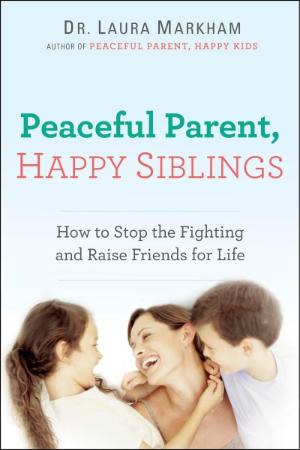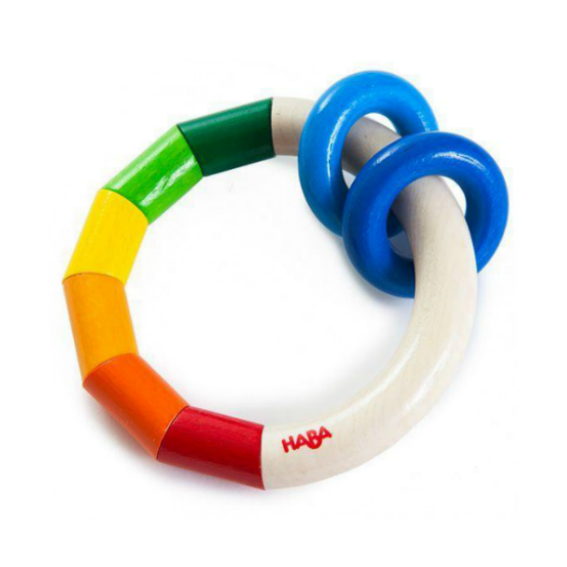When Your Toddler Grabs from the Little one
There’s a motive “taking candy from a toddler” has come to characterize a simple nevertheless immoral abuse of power.
You might be correct to actually really feel uncomfortable alongside together with your toddler’s compulsive grabbing from the new child; it is not good for the new child — and it is not good in your toddler.
That’s on account of his habits will not be really regarding the toy he’s grabbing. Compulsive habits of any selection indicators a deeper unmet need or feeling we won’t
verbally categorical. In several phrases, in case your child “on a regular basis” grabs whatever the youngster is holding, then he has some large feelings which will be driving him to
compulsively take from his sibling.
Usually, when youthful children actually really feel a decided urge to take points from their youthful sibling, it’s an attempt to remedy feelings of loss from having to
share so many points with the new child — even their mom and father.
Is grabbing toys on a regular basis about sibling rivalry? No. A 26 month outdated is solely creating social experience, and this may even be seen as a careless attempt to
“relate” to his brother. So in cases the place the toy grabbing is sporadic, and the new child does not object, I don’t assume adults need to intervene. Children aren’t on a regular basis unhappy about
the toy being taken from them, and they also be taught tons from the interaction, whether or not or not they’re the grabber or grabbee.
Nonetheless on this case, the grabbing is mounted, so it looks like every kids will revenue from grownup assist. Whether or not or not that’s sibling rivalry or straightforward toy
envy, it’s a terrific various to point out your son some social experience AND help him course of his feelings, once you let your youngster know you might be there
if he needs you. Right here is how.
1. Interpret in your children. “I see Little one shaking his rattle so onerous and laughing… Big brother is curious… Big brother needs to try the rattle, too…. Big brother takes the rattle… Little one seems to be like shocked… Now brother shakes the rattle… shake shake shake… Little one laughs and laughs….Big brother laughs too… Now Little one has the giraffe… He is attempting to position it in his mouth… Now Big brother needs the giraffe… Big brother takes the giraffe… Little one seems to be like shocked.”
Why? On account of your 26 month outdated will not be really aware of what he’s doing and what influence it has on his brother. He’s merely feeling an impulse and following
it. Your phrases help him develop self-awareness.
And whereas your three month outdated will not be pretty optimistic however what you might be saying, he’s conscious of you might be acknowledging him, which points. He needs your help to understand
social dynamics.
If you’ll be able to do it with empathy and as little judgment as doable, it helps every children actually really feel heard, which diffuses upset feelings. (Some mannequin of this
works from babyhood correct by the use of {the teenager} years.)
2. Empathize, and ask inquiries to assemble empathy. “That rattle sounds pretty good, wouldn’t it? You want to shake it, too…. Your brother appeared shocked when you took the rattle… I am questioning if he was completed collectively along with his flip?…. What do you assume he would say if we requested him?”
3. Don’t energy children to share. I acknowledge your certainty that you don’t want to energy your toddler to share. Evaluation confirms that
forcing sharing really delays the occasion of generosity and sharing experience. Kids have to actually really feel protected of their possession sooner than they will
share. In its place, as you’ve apparently completed, I counsel households introduce the concept of taking turns. (“Little one has the rattle… Then it’s going to be your flip.”)
4. Let the child in possession of the toy resolve how prolonged his flip lasts. If kids assume adults will snatch a toy away as quickly because the grownup’s
random considered “prolonged adequate” has handed, you might be modeling grabbing, and the child usually turns into additional possessive. If, towards this, the child is free
to utilize the toy for as long as he needs, he can completely have the benefit of it after which give it up with an open coronary coronary heart.
Nonetheless how have you ever learnt whether or not or not the new child is completed collectively along with his flip? Educate your son to ask. “You want the rattle? I am questioning in case your brother is completed with it? Why don’t you carry him a definite toy, to see if he is ready to swap?”
Now, as a rule, the new child will happily swap toys. He’ll most certainly assume it’s a sport. That’s efficient. Your son stays to be finding out reciprocity, and to
respect the new child’s flip. Nonetheless the truth is as a result of the kid will become older, this may not on a regular basis work. Instructing your child to provide a swap from the time the new child is
small lays the groundwork for him to respect the new child’s choice as a result of the kid turns into assertive and clings to the toy.
5. Help your son sit up for his flip. Since you’re a dad or mum, you’ve already seen the onerous half about letting the toy-holder resolve when
his flip is up– the alternative child has to attend! Naturally, kids uncover that excruciating.
Nonetheless a rigid attachment to a specific toy will not be really regarding the child’s need for that toy. It’s about his decided attempt to handle all these feelings
spilling out of his emotional backpack. He thinks that if he can merely have that one toy, points shall be okay. (You almost certainly know adults like that.
:-))
Nonetheless the truth is, as rapidly as he’ll get that one issue, the new child will select up a model new toy, and the older child will desperately need to take that new
toy to actually really feel okay.
The most effective methods to help your child work by the use of these decided feelings is to make it protected for him to point them to you. So after you’ve spent numerous days
working with these ideas, along with making it clear that the one who has the toy decides how prolonged their flip will closing, chances are you’ll begin intervening
to hold that limit.
When your son begins to grab from the new child, put your hand on the toy to stop him. Say “I see you want that…. It’s nonetheless the new child’s flip…. Your flip shall be subsequent… Are you able to uncover one different toy to play with correct now?”
If he happily finds one different toy, terrific! If not, he’ll each get offended, or begin to cry. If he’ll get offended, soften your self and talk to the upset
beneath the anger: “I’m sorry it’s so onerous, Sweetie… I’m going to help you wait.” Your compassion will help him switch earlier the anger to
the tears beneath.
When he cries, remind your self that it’s okay for the new child to hold on to the toy, and in your older child to attend. These feelings aren’t really about
that one toy, nevertheless concerning the reality that your older child feels pressured to share each factor with the new child.
Maintain shut, inform him he’s protected and likewise you are correct there. Your goal is to create safety alongside together with your empathy: Acknowledge how rather a lot he needs that toy, and the way in which
onerous it is to attend for his flip. Do not be involved if he cries harder at that — all of us actually really feel safer to “let all of it out” after we actually really feel understood.
So the easiest way to “treatment” your son’s compulsive grabbing is to supply him a possibility to actually face all these uncomfortable feelings that he is attempting to stave
off collectively along with his grabbing. After we (folks) experience our emotions with out acting on them, the emotions dissipate. Little children, notably, usually
have emotional backpacks overflowing with upsets they haven’t felt as a lot as going by means of. It’s your loving, compassionate presence that makes him actually really feel protected
adequate for that deep dive.
Nonetheless the great issue is, after “exhibiting” you these pent-up emotions, he most certainly won’t even care regarding the toy he was prepared for, and you may even see his
grabbing diminish.
What can you anticipate after this “scheduled meltdown”?
- Lots a lot much less grabbing.
- A happier, additional versatile, additional cooperative child.
- A child who’s additional comfortable collectively along with his emotions, and thus additional able to control them.
- A extra in-depth relationship alongside together with your child.
- A happier youngster who’s free to find objects with out having them snatched away.
- Two children with rising self-awareness and social experience.
And among the finest info of all?
- A optimistic foundation in your children’s relationship with each other.
On account of once you filter out all that fear and resentment, sibling love has a possibility to develop.







